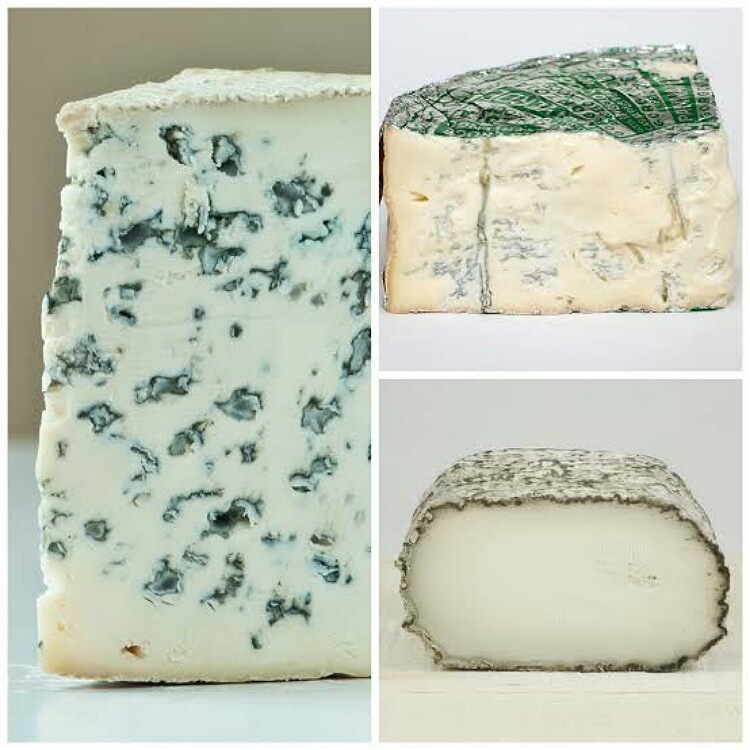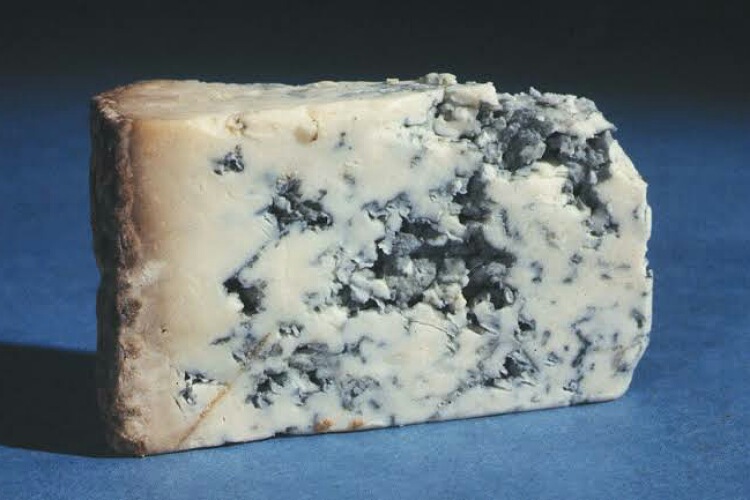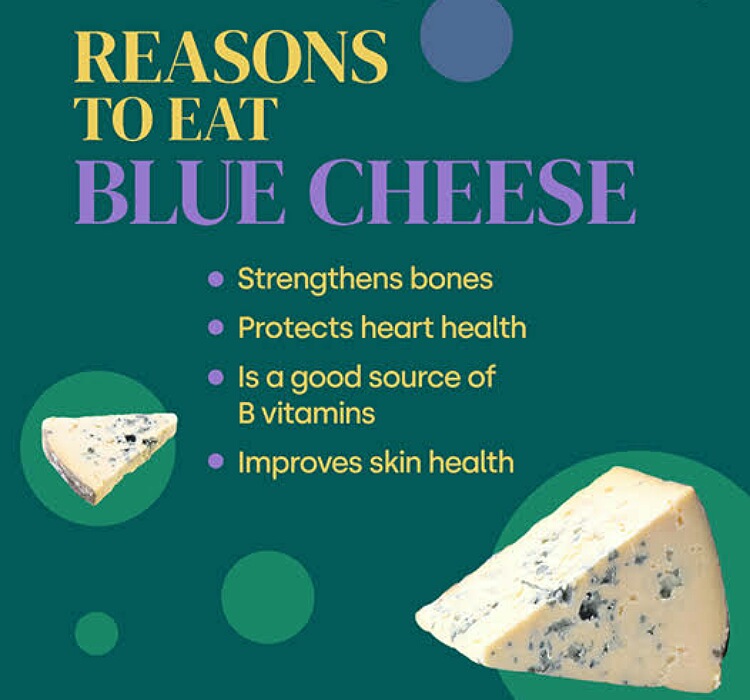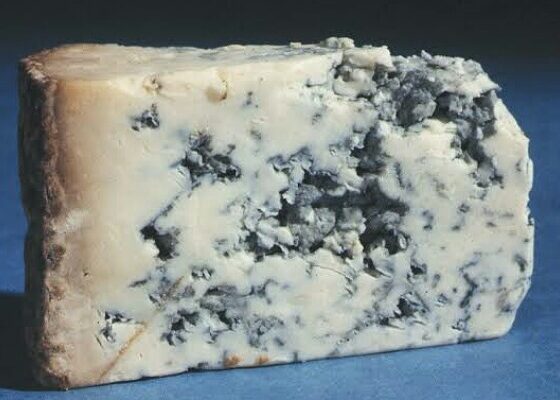We all have seen and eaten cheese that they are white, off white or light yellow in color. There is a type of cheese called blue cheese. Is it all blue? Why is it called so? How is it different from the rest? Does it have any unique health benefits? What is its taste and nutritive value? This and more below.
Blue cheese
Blue cheese is a type of creamy and flavorful cheese. It is not all blue in color but has blue dots and veins in it. These are due to the molds present in it. These are due to the aging by saprophytic fungus, Penicillium Roqueforti .
Originally, this cheese is from France. It has several varieties such as Blue Stilton, Gorgonzola, Roquefort and Danablu. It has a lot of flavor and a tangy taste. The smell is pungent. One can eat it with other cheese types or have it as an appetizer. It is a snack item and can be used as a topping on salads. It has low calories and a lot of beneficial nutrients for the body.

Health benefits
Heart friendly
Studies have revealed that blue cheese consumers have lowered risk of cardiovascular diseases compared to those who do not eat it. It lowers blood bad cholesterol and decreases arterial inflammation. Also risk of blood clots and strokes lessens.
Arthritis relief
With old age come chronic diseases due to body inflammation. And joint swellings are one of them and they can debilitate. Adding this cheese to your diet lowers the risk. It is anti-inflammatory.
Probiotic
It has healthy bacteria in it. Hence, it tends to add on and favor the growth of healthy gut microbiome. Thus, it is a good probiotic just like yoghurt and fermented foods.
Osteoporosis prevention

Osteoporosis is a disease of old age and seen especially in women. Bones get brittle and fracture with minimal trauma. This cheese is a good source of calcium and phosphorus. There is 150 mg of calcium in an ounce of this cheese. Hence it can strengthen the bones. Start having it early in youth for good effects in old age.
Memory enhancement
A 2018 study showed that fermented products like blue cheese can improve brain function due to its high content of peptides, fatty acids, and the lactic acid producing bacteria.
Dental health
The calcium content of this cheese helps fight tooth plaques, erosions and decays. It promotes good dental health.
Milk protein
This cheese has the milk protein. Those with lactose problems can opt for this to acquire the milk protein. But it is important to remember that the cheese is not totally lactose free. It does contain small amounts of it.

Immune booster
This cheese boosts immunity. It has essential minerals and vitamins such as zinc, vitamin A, vitamin D, vitamin K2, potassium, sodium, and antioxidants. These have a role to improve the immune function of the body.
Also, read Cheese fondue: the cheesy treat: Good or bad?
Body fat reduction
Cellulite is the fat especially in the upper parts of thigh region that makes the area appear and feel lumpy. Cheese can assist in minimizing this and thus aid in weight management.
